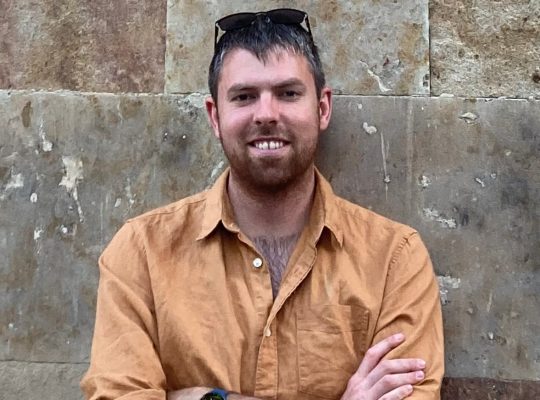
Academic Background
I was an undergraduate at the University of Sheffield, where I studied History and Hispanic Studies, which included a year abroad in Oviedo in northern Spain. I returned to Asturias to teach English on graduating before swapping the bagpipes for jotas via an MA at the Universidad de Zaragoza. I received my PhD from Sheffield in 2015 and have taught at the universities of Loughborough, Durham and Stirling. I have also enjoyed research fellowships at York University (Toronto), the Institute for Social Movements (Bochum), the Centre for Ibero-American Studies (Leeds) and the Universidad de Granada.
I am a Fellow of the Royal Historical Society and a Fellow of the Higher Education Academy.
Research Interests
I am a social and cultural historian of modern Spain and much of my work examines the meaning and practice of politics in everyday life. My doctoral work focused on the Spanish Second Republic, specific the revolutionary insurrection in Asturias in October 1934. This resulted in a book that examines the process of ‘radicalisation’ in the Asturian coalfields’, as well as articles and book chapters on secularisation, anticlerical violence, antifascism and boycotts as a form of popular justice.
My current work moves away from this tight focus on the prelude to the Spanish Civil War towards the broader history of political engagement in twentieth-century Spain. I’m working on two connected, but different projects. The first is a history of Spanish charivari or rough music, which I’m currently studying in the context of late twentieth-century Spain.
The second project is a history of sound and mass politics in Spain from the 1890s to the Second Republic. I’m working on different forms of political sound and noise-making and their role in expressing or regulating political behaviour. I’m interested in a variety of themes, from the role of new technologies of amplification to shouting and singing at rallies and in demonstrations.
Publications
- ‘The sound of blasphemy in early twentieth-century Spain: vulgarity, violence and the crowd’, in Eveline Bouwers and David Nash (eds), Demystifying the Sacred: Blasphemy and Violence from the French Revolution to Today (Berlin: De Gruyter, 2022), pp. 219–246
- ‘The Last Echo of 1917? The Asturian October between Revolution and Antifascism’, in Stefan Berger and Klaus Weinhauer (eds), Rethinking Revolutions from 1905 to 1934: Democracy, Social Justice and National Liberation around the World (Cham: Palgrave Macmillan, 2022), pp. 255–275
- ‘Los boicots en la primavera del Frente Popular: crisis y justicia del pueblo en la Asturias de 1936’, Historia social, 103 (2022), pp. 95–116
- with Alexandra Paulin-Booth, ‘Introduction: Activist Times: Temporality and Political Action in Twentieth-Century Europe’, European Review of History/Révue d’Histoire Européenne, vol. 28, no. 4 (2021), pp. 475–83
- Unite, Proletarian Brothers! Radicalism and Revolution in the Spanish Second Republic, 1931–1936 (London: University of London Press, 2020), 264pp, open access, HB, PB.
- ‘The Bones of Contention: Culture Wars and the Secularisation of Cemeteries and Death Practices in the Spanish Second Republic’, European History Quarterly, vol. 49, no. 1 (2019), pp. 73–95
- ‘Radicalisation, Community and the Politics of Protest in the Spanish Second Republic: Asturias, 1931–1934’, English Historical Review, vol. 132, no. 555 (2017), pp. 318–343
- ‘Painted Tonsures and Potato-sellers. Priests, Passing and Survival in the Asturian Revolution’, Cultural & Social History, vol. 14, no. 2 (2017), pp. 237–255
Links
Subject notes for courses taught at Jesus College:
See also Faculty of History website.
